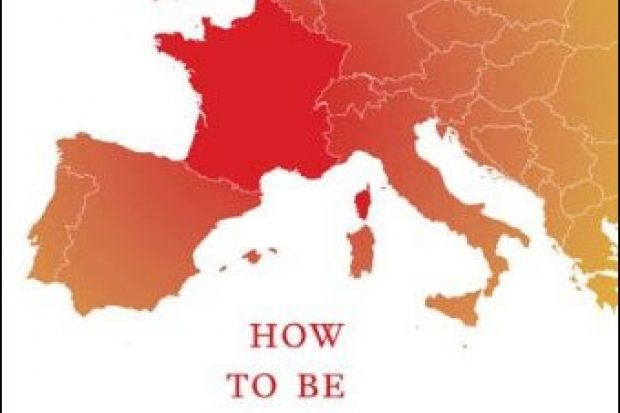In July 2008, the French Conseil d'Etat turned down an appeal from a Moroccan woman married to a French national: she had been refused French nationality on the grounds of non-integration into republican values. Her wearing of a burka, although not the only reason cited, was widely perceived as symbolic, and the media referred to it as the "burka case". Patrick Weil's exhaustive study explains the legal background to acquiring - or losing - French nationality.
The English version of his book has a more gender-neutral title than the original (Qu'est-ce qu'un Francais?, ie, What is a Frenchman?). In fact, gender features strongly in a history dating back more than 200 years. Nationality was not always synonymous with citizenship.
During the Revolution, a Frenchwoman, though not a citizen, could confer nationality on a foreign husband, who might himself become a French citizen. But in the Napoleonic Civil Code of 1804, it became obligatory for a woman to take her husband's nationality: Frenchwomen lost their French status if they married a non-national.
This provision remained in force until 19, by which time many Frenchwomen who had married men from bordering countries such as Italy and Belgium were foreigners in their native land. Not until 1973 was the law made fully voluntary for spouses of either sex to opt for changing or retaining their original nationality. The foreign partner would still have to apply for naturalisation, normally a fairly light-touch application process. France's traditionally relaxed attitude to double nationality means that the current position on spouses is, in theory at least, quite liberal compared with some other countries.
Weil's final chapter, on the present situation, explains that although stricter conditions about the length of marriage now apply, few spousal applications are turned down on the grounds of failure to integrate, which explains why the burka case made the headlines. Many readers will probably find this final chapter, "How does one become or remain French (today)?", the most immediately readable and relevant to understanding France's nationality laws, but it is a coda to a densely organised and thoroughly researched analysis of jurists' debates and legal decisions since 1789.
The book is clearly signposted and written - and very carefully translated by Catherine Porter - but the level of detail will probably make it more attractive to specialists than to a wider audience. More than a third of its pages consist of footnotes and appendices. (Alas, there is no index.) Several clear lines of thought nevertheless emerge.
One is the distinction between ius sanguinis (rights by bloodline/paternal descent in the Civil Code) and ius solis (rights by birth/residence on national territory). Where the Revolution maintained the latter, of which the ancien regime practised the feudal version, the Empire enforced the former, embodying the idea of belonging to a hereditary nation.
Only in 1889 did the Third Republic reintroduce a degree of ius solis, making it possible for foreign residents and children born to foreigners on French soil to apply for nationality. This was more radically extended in 19, which saw a wave of naturalisations of immigrant workers and refugees, as well as liberalising the position of Frenchwomen with foreign husbands. It remains one of the planks of the law today.
The second theme is that pragmatic considerations, as well as principles, have always influenced the law. Napoleon was keen to stop Frenchmen joining foreign armies. By 1889, demographic anxiety and growing immigration pushed the law in a liberal direction, reinforced in 19. Republican thinking was that socialisation within French society, particularly of immigrants' children, would benefit both France and the incomers.
The most shocking development, to which Weil devotes a long and detailed chapter, was the decision by the Vichy authorities during the Second World War to embark on retrospectively reversing naturalisations granted since 19, many of them to Jewish refugees. Weil patiently dissects the procedures involved, incidentally revealing differences between restrictionist jurists and more racist ideologues. Disquietingly, he shows how the sinister anti-Semitic figure of Georges Mauco contrived to shed his Vichy past just in time to become a power in postwar France, arguing (unsuccessfully in the end) for a hierarchy of desirable/undesirable immigrants.
France's former colonies, in particular Algeria, were nevertheless the focus for further complications and discrimination over who could or could not claim French citizenship, either automatically or through application. More recently, given the presence of French-born children of foreign nationals, especially from Muslim countries, there have been swings of policy under successive governments about the conditions under which this second generation can claim French nationality. Since 1998, it is granted automatically, provided fairly reasonable residence requirements are met.
One feature of French republicanism is a distrust of "multinationalism", assumed to mean retaining a separate identity. Thus, it is illegal for the censuses or other official sources to collect data on ethnic origins or religious allegiance - something that is currently the subject of debate. Weil explicitly avoids any discussion of French cultural identity, but his dispassionate and scholarly book sheds much-needed light on the complex legal aspects of the question for these post-colonial times.
How to Be French: Nationality in the Making since 1789
By Patrick Weil
Duke University Press, 456pp
£56.00 and £13.99
ISBN 9780822343486 and 43318
Published 25 March 2008
Register to continue
Why register?
- Registration is free and only takes a moment
- Once registered, you can read 3 articles a month
- Sign up for our newsletter
Subscribe
Or subscribe for unlimited access to:
- Unlimited access to news, views, insights & reviews
- Digital editions
- Digital access to THE’s university and college rankings analysis
Already registered or a current subscriber?
